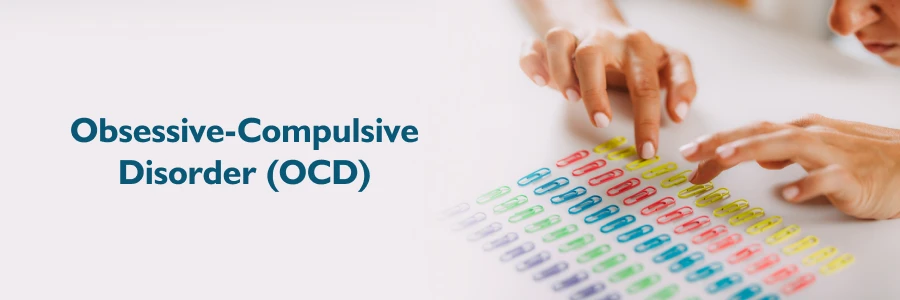Plagiarism in the UK: What Counts and How to Avoid It?

Plagiarism is a continuing and growing concern in higher education and in academic publishing (Drisko, 2022). It is one of the most serious academic misconducts in the UK. It can destroy not only your grades but also your academic reputation, as well as your future career. Universities all across the UK have set serious penalties for the detection of plagiarism in the submitted academic projects, ranging from failed assignments to expulsion in severe cases. Many students go for assignment help in UK to make sure that the project they are delivering is free of plagiarism.
Asking a professional to do my assignment means the customisation of your projects from the start, ensuring no presence of plagiarism. It is because many students deliver plagiarised work by accident, but getting professional help is not the only option. You can do it as well by detecting and fixing it or by avoiding it. The following post explores the things that are counted as plagiarism and the ways to avoid it.
What is Plagiarism in the UK?
Plagiarism is not just point-by-point replication of another person’s work. According to many universities in the UK, plagiarism is referred to as the presentation of another person’s words, ideas, or work as your own without giving proper credit. Plagiarism occurs in multiple ways:
- Direct copying: Replication of another person’s sentences, paragraphs, or structure without quotation or credit.
- Paraphrasing without credit: Rephrasing another person’s ideas in other words, but without giving the original source.
- Self-plagiarism: Plagiarising your previous work from a previous class or assignment without citation or acknowledgement.
- Collusion: Working with another student on an individual assignment and turning in identical or equivalent work.
- Improper referencing: Failure to properly cite sources, even accidental.
In short, it can be said that plagiarism covers any activity where originality is absent. Even mistakes, like forgetting quotation marks or confusing citations, are also counted as plagiarism by UK academic standards.
Why Plagiarism Is Handled So Seriously in the UK?
UK-based universities have strict academic integrity rules because education here is based on originality, research, and critical thinking. Academic dishonesty compromises these ideals and reduces the credibility of degrees. Academic misconduct destroys trust in higher education, resulting in penalties like:
- Grade penalties.
- Academic probation or being marked in academic records.
- Expulsion in repeated or serious cases.
- Damaged reputation, which makes it harder to find employment, internships, or postgraduate studies.
How Universities Detect Plagiarism?
Students often underestimate how good universities are at detecting plagiarism. In the UK, most institutions use advanced software, like Turnitin, which checks submissions against an extensive database of academic publications, books, websites, and previous students’ submissions.
These tools not only pick out precise wording, but also paraphrased content, unfamiliar similarities, and structural similarities. Professors then review the highlighted content to determine if plagiarism has occurred or if the similarity is real.
In addition, lecturers normally detect plagiarism by noticing a sudden change in style. When a student’s work is not their typical standard, it raises a question mark even in the absence of software.
Critical Reasons Contributing to Student Plagiarism
Understanding the reasons why students plagiarise helps avoid it. Some of the most common causes are:
- Poor time management: Waiting until the last minute to do assignments forces students to copy or completely rely on sources.
- Misapplication of referencing conventions: All UK universities have specific referencing styles, and mistakes in citation directly cause unintentional plagiarism.
- Desire to earn high grades: Burdened students attempt to take shortcuts.
- Language challenges: Some international students struggle to express ideas in their own words and over-rely on sources.
Practical Strategies to Avoid Plagiarism
Avoidance of plagiarism is not only a matter of avoiding penalties, but it is also about acquiring integrity and academic reputation. Developing original ideas, respecting intellectual property, and creating new insights are all part of UK education. You can avoid plagiarism by sticking to the following points:
Know Referencing Styles
There is a preferred referencing system in each field. Familiarise yourself with the style needed and master it thoroughly. You can also use reference generators that make studying easier (Hardwood, 2025). The majority of universities have referencing guides and workshops, from which you can take help.
Maintain Source Records
Keep a record of all the books, articles, or websites you are gonna cite while you read. There are tools that will help you sort citations and references for you. This prevents losing sources later on.
Paraphrase Effectively
Paraphrasing is not substituting words with synonyms. Paraphrasing is to process the original source, get to the core of it, and then describe it in your own words. Always cite, even when paraphrasing.
Use Quotations Correctly
If you want to quote word-for-word, make the quote concise and put it in quotes. Provide a proper in-text citation and include the full source in your references list.
Plan Your Work Early
Start working on the project soon after they are assigned to complete the task on time without any rush. Effective time management keeps the temptation to plagiarise or rush citations in check. Breaking down tasks into smaller steps of research, writing, and editing keeps work manageable in hand.
Check Your Work with Plagiarism Tools
Most institutions allow submissions of drafts to be checked using Turnitin or another tool before making the final submission. Use the opportunity to check for accidental plagiarism and fix it.
Build Academic Writing Competences
Enhance the competence of building an argument, paraphrasing concepts, and evaluating sources. The more self-assured you are in writing, the less you will use external content overly.
In fact, plagiarism-free work showcases your research, critical thinking, and knowledge-expression skills. These are all important skills useful to you well beyond university.
Conclusion
UK plagiarism is highly regarded, but it is also entirely avoidable with a good strategy. Students can protect their intellectual integrity and excel in their studies by understanding what plagiarism is, recognising why plagiarism takes place, and using good techniques. Start assignments ahead of time, cite sources correctly, and never try to write someone else’s ideas. Remember that original work not only earns better grades but also builds necessary skills for your professional career. Academic integrity is not a requirement; it is the basis of meaningful learning and lasting success.




